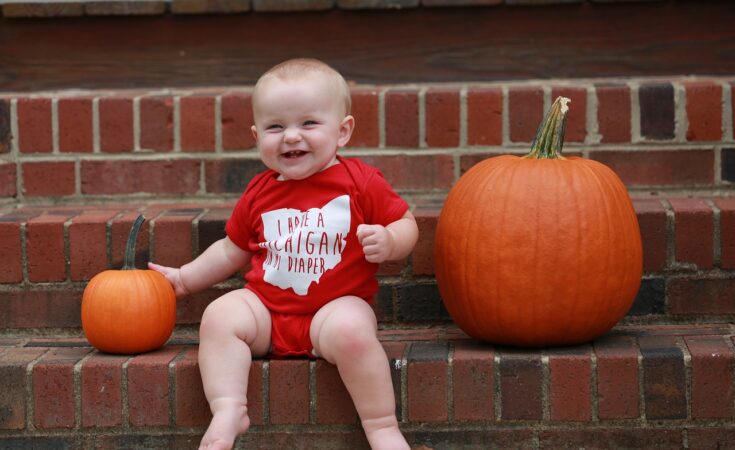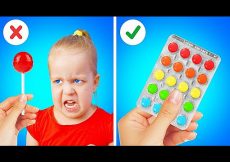Family dynamics can be complex, and one aspect that often goes unnoticed but leaves a profound impact is the unhealthy habit of comparing children within the family. Whether it’s siblings, cousins, or other relatives, constant comparisons can have lasting consequences on a child’s development and self-esteem. This article explores the ramifications of these comparisons, delving into how children experience them and the potential long-term effects, especially when roles are erroneously assigned by parents.
The Emotional Toll on Children:
Comparisons between siblings or relatives can lead to a myriad of emotional challenges for the children involved. Feelings of inadequacy, jealousy, and resentment may manifest, creating a hostile environment within the family. Children subjected to continuous comparisons may struggle with self-esteem issues, anxiety, and even depression, as they grapple with the pressure to live up to unrealistic expectations set by their parents.
Parental Motivations:
Understanding the motivations behind parents who engage in constant comparisons is crucial. Often, parents may compare their children with the intention of motivating them to excel or achieve more. However, in some cases, comparisons can stem from a desire to highlight one child’s accomplishments over another’s, potentially fueled by their own unmet aspirations or unresolved family dynamics.
The Impact on the Child Assigned the “Negative” Role:
When a child is consistently labeled as the underachiever or less talented, the repercussions can be significant, extending into adulthood. This child may develop a sense of inadequacy and harbor feelings of resentment towards the favored sibling or relative. In some cases, these negative comparisons can fuel a strong desire for revenge or validation, driving the child to prove their worth later in life.
The Unexpected Reversal:
Interestingly, the dynamics within a family can shift over time. The child who was once deemed less capable may, through the development of unique talents or attributes, become the family “star.” This reversal can have profound effects on both the child who rises to prominence and those who were once celebrated.
For the child who becomes the new focus of attention, the sudden spotlight can be overwhelming. While they may revel in newfound recognition, it can also create pressure and expectations that are difficult to meet. Additionally, the children who were previously favored may experience feelings of confusion, jealousy, or even resentment as they adjust to their altered status within the family.
Conclusion:
Comparisons between children within a family can have enduring consequences on their emotional well-being and development. Parents should be mindful of the impact that seemingly harmless comparisons can have on their children’s self-esteem. Encouraging each child’s unique strengths and fostering a supportive environment can contribute to a healthier family dynamic, allowing each child to flourish without the burden of constant comparison. Ultimately, the goal should be to nurture individual potential and celebrate the achievements of each family member, fostering a positive and inclusive family culture.
Josephine’s testimony
Josephine is a 48-year-old woman, a tall, slender blonde with violet eyes, exuding a sense of elegance, reminiscent of Carolyne Bessette Kennedy. She is a graduate of several prestigious French and American universities. Josephine appears to be flourishing both in her professional life and her family life. She shares her past, reflecting on the dynamics of her family ties…
‘In my family, I was the youngest. One of my aunts had decided that she would be the only one in our family to have children! You can imagine the egocentric nature of this woman! Of course, her brothers and sisters did not pay attention to her “fantasy” of being the only mother in the family and went on to have children. So, she engaged her own daughters in an internal struggle, an unparalleled rivalry against the other children in the family. She particularly encouraged them to mock me. I was never good enough; supposedly, I was too fat, too sensitive, too unhealthy, too goofy, and so on. I never found favor in her eyes. Soon, she drew the “sensible” members of the family into this insane race of comparison. I lived an unhappy childhood, constantly seen as the ugly duckling while the others were swans. I eventually came to despise that side of the family as much as they disdained me behind false smiles. Then, I reached the awkward age of adolescence, and there too, I faced criticism. I was supposedly ugly and fat. But soon, something incredible happened to me. I went on vacation with delightful young people on a fabulous island in the Mediterranean; I returned slimmer, with blonder hair and a tan. A boy from school, whom I admired greatly for his intelligence, fell in love with me. I revealed myself as I truly was: I regained all the self-confidence I had lost before! This new love, meant to be eternal, galvanized me. I set out to overshadow all those family members who had made me suffer by realizing very visible projects: exhibiting my paintings in Paris, finding a publisher for my books, singing, composing, and dancing. I made several albums with professional musicians. Time passed. Always galvanized by my beautiful love, I continued. Ten years later, I lived the life of an artist, traveling worldwide, appearing on television, etc. I soon stopped thinking about that messy family that had ruined my childhood! I spoke about well-being in magazines, and even as age advanced, I found myself more and more beautiful and desirable!
I built a family, inherited a huge house, and one day, while talking to people who still interacted with my family, I learned that they had all become unattractive and very frustrated! How was this possible? I looked at photos on social media: the shock! Those who had caused me so much pain looked like “country bumpkins,” as they say in France. I then realized that I was an eagle and that, at one point in my youth, I had tried to fly with chubby chickens! These comparisons initially destroyed my self-confidence, but ultimately brought me the best: a life with high values and goals that I would never have achieved in my original environment! Many close relatives recounted to me how much my aunt and her family were jealous of my progress and numerous successes. In the family, they always spoke of me as a “failure,” but nevertheless, they envied me! Someone who judges you negatively and envies you at the same time is never very healthy! What do you think? My aunt repeatedly told anyone who would listen that “I had been very lucky,” but it has nothing to do with luck; it’s about willpower and effort! I believe that when your achievements surpass the image others have of you, it must be very frustrating, and now, it’s them who feel that frustration! Today, I know that I am an eagle, and eagles should not try to take flight among chickens! This is my testimony on comparisons. I hope it makes you both laugh and reflect! When you destroy someone, you never know what strength you are actually instilling in them!


































